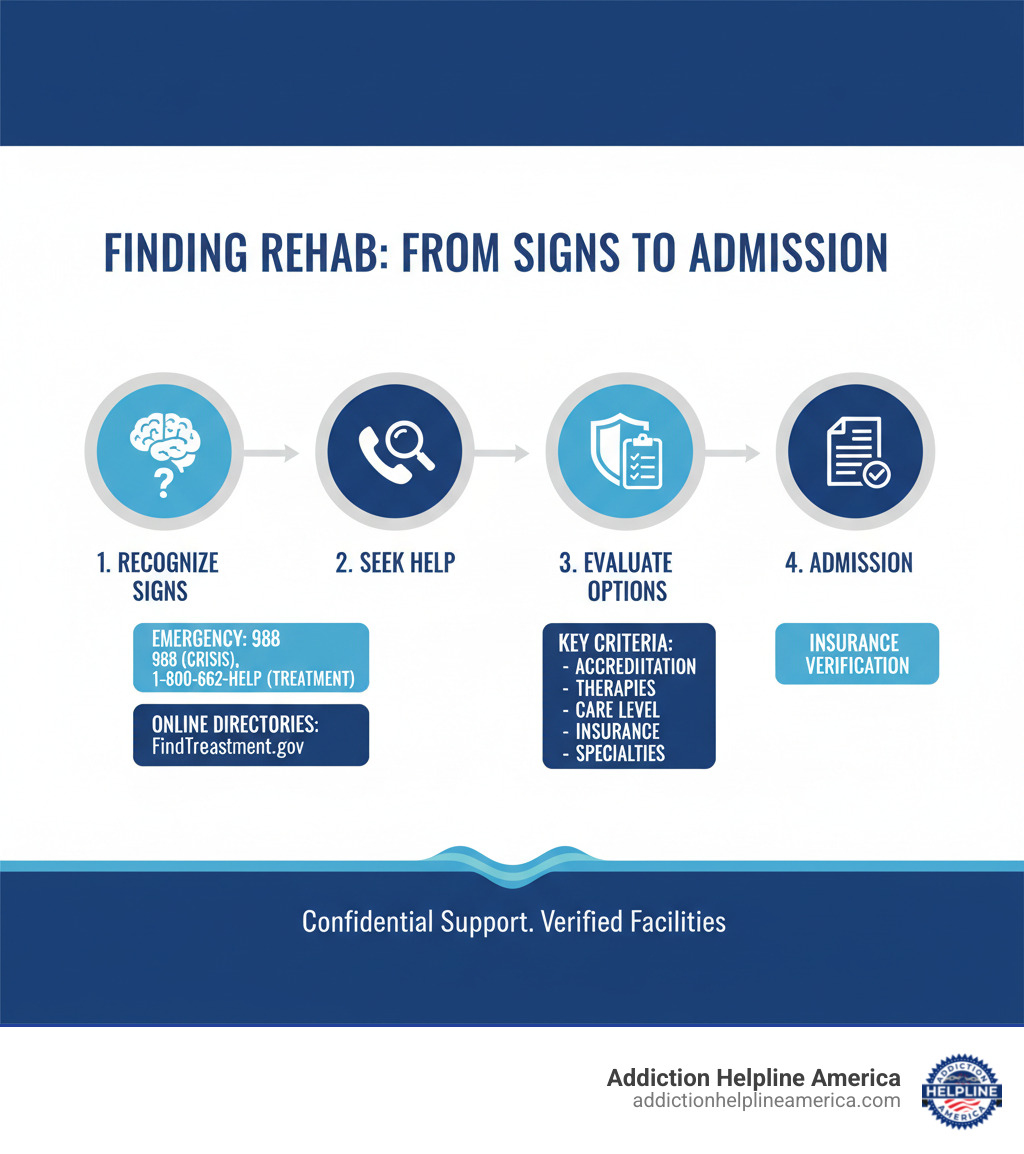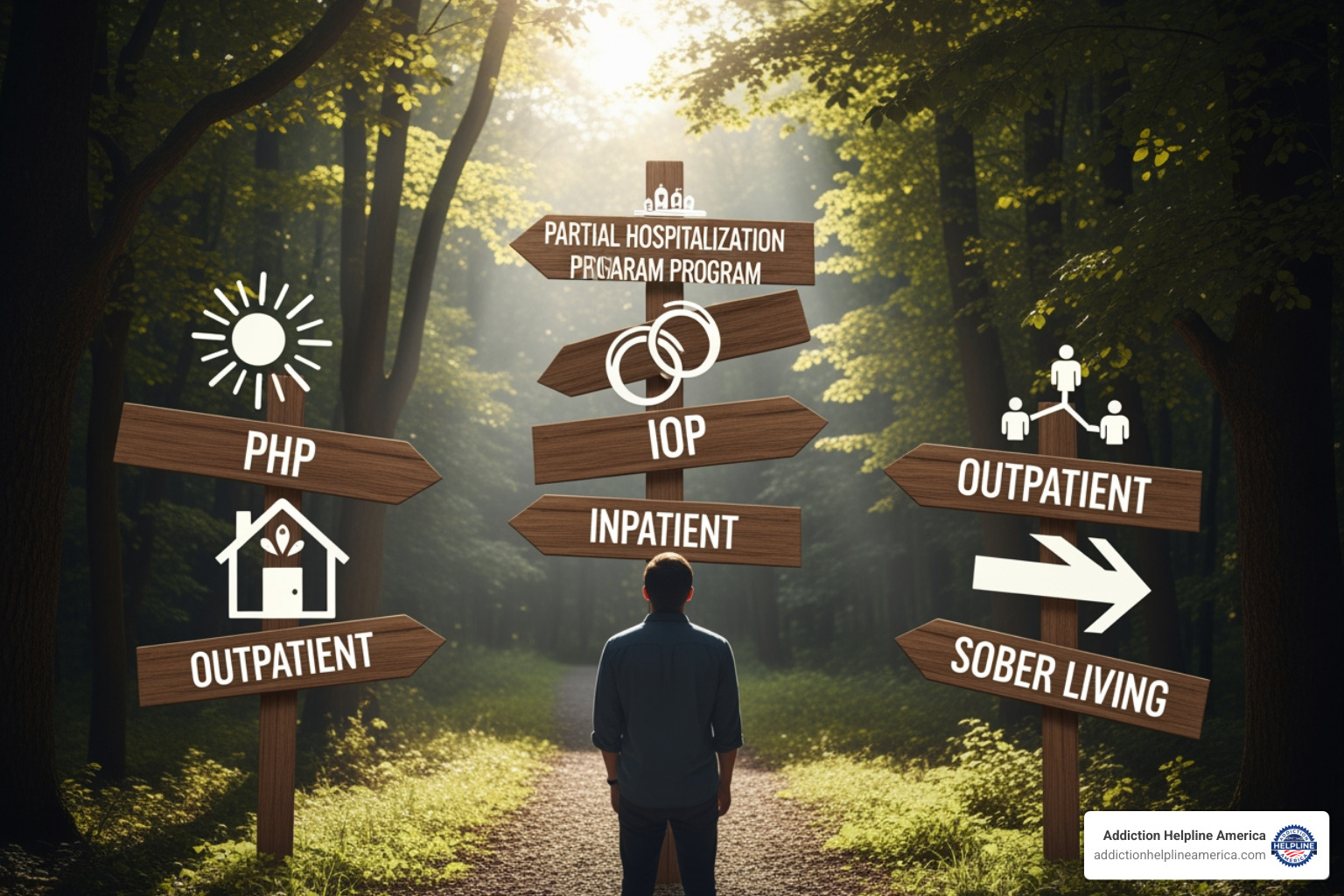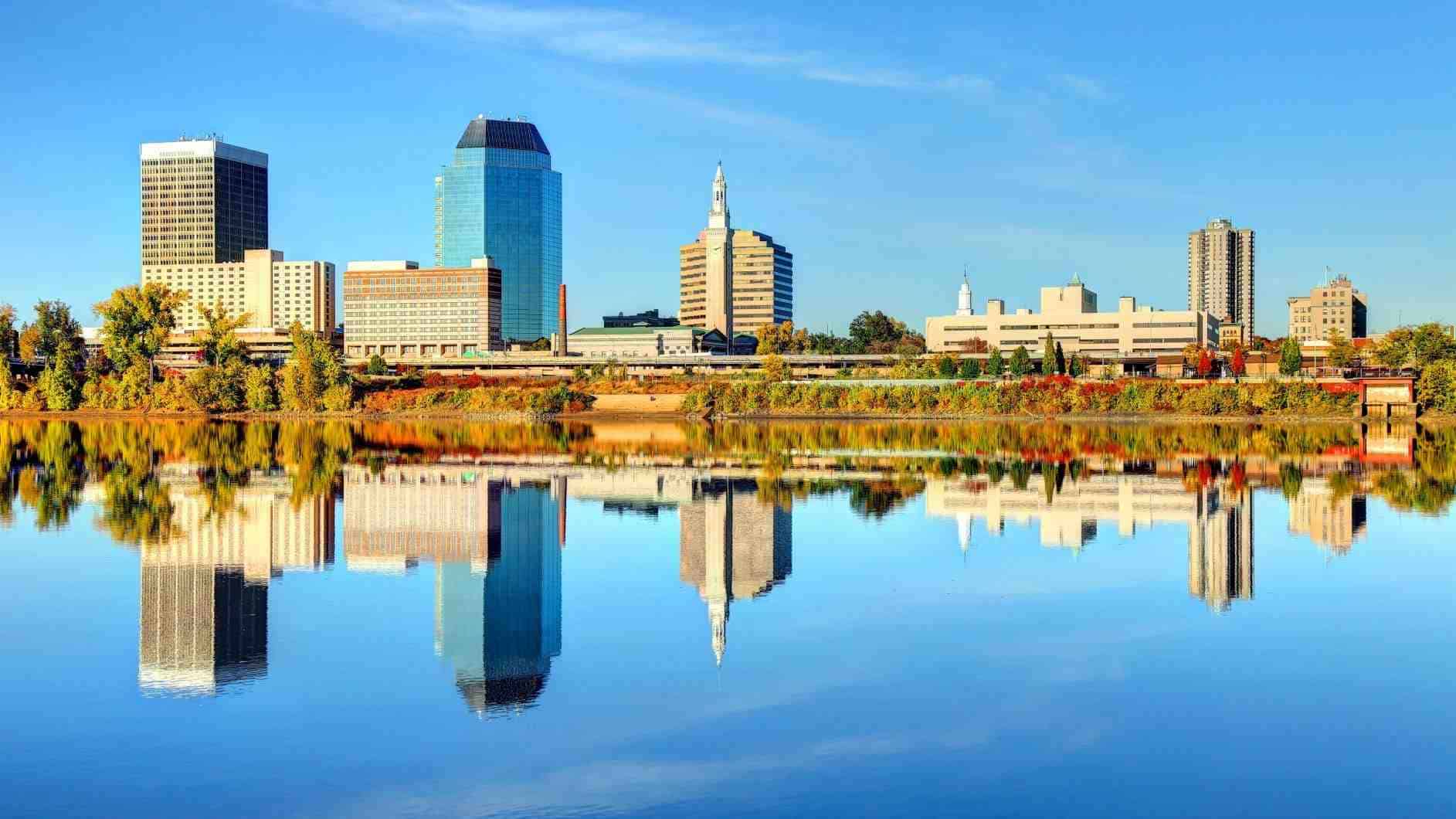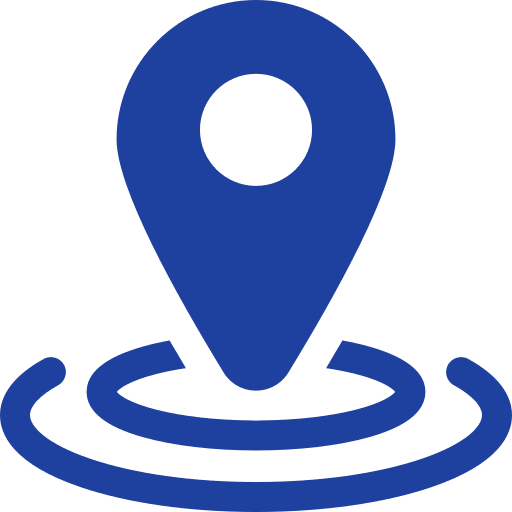
Why Finding the Right Rehab Facility Can Save Your Life
Find rehab facilities quickly and confidentially using these proven methods:
Top Ways to Find Rehab Facilities:
- Use a 24/7 Helpline – Addiction Helpline America offers free, confidential, and personalized guidance to connect you with vetted treatment centers.
- Contact Your Insurance Provider – Your insurance company can provide a list of in-network facilities covered by your plan.
- Consult a Healthcare Professional – Your doctor or a mental health professional can offer referrals to trusted programs.
- Check State Health Department Resources – Many states offer directories of licensed treatment providers.
What to Look for When You Find Facilities:
- Accreditation (CARF, Joint Commission)
- Evidence-based treatment approaches (CBT, MAT)
- Appropriate levels of care (detox, inpatient, outpatient)
- Insurance acceptance and payment options
- Specialized programs for your specific needs
Millions of Americans struggle with substance use and mental health disorders. Since about half of those with a substance use disorder also have a co-occurring mental illness, finding a facility that treats both is critical. The search can feel overwhelming, but you don’t have to do it alone.
Addiction Helpline America has connected thousands of people with life-saving treatment. Our 24/7 helpline offers immediate guidance, insurance verification, and personalized referrals to accredited programs nationwide, matching you with care that fits your unique needs.

Find rehab facilities word roundup:
Recognizing the Need for Professional Help
Admitting you need help is often the hardest step. If you’re wondering if your situation is “bad enough” to seek help, it’s worth exploring. Mental health and substance use disorders are treatable medical conditions, not character flaws.
A critical fact is that about 50% of people with substance use disorders also have a dual diagnosis, meaning a co-occurring mental health condition. This is why finding a program that offers integrated treatment for both issues is essential for lasting recovery.
It’s time to seek professional help when behavioral, physical, or psychological changes become persistent patterns that interfere with daily life. If you need help starting this conversation with a loved one, our Pre-Rehab Addiction Intervention Guide offers compassionate, practical steps.
Common Signs of a Substance Use Disorder
Spotting a substance use disorder can be difficult, as denial often plays a large role. However, certain patterns are hard to ignore:
- Behavioral Changes: Increased secretiveness, sudden mood swings, or loss of interest in once-enjoyed activities.
- Neglecting Responsibilities: Missing work or school deadlines, failing to pay bills, or neglecting family commitments.
- Increased Tolerance: Needing more of the substance to achieve the same effect.
- Withdrawal Symptoms: Experiencing physical or psychological discomfort like nausea, shaking, anxiety, or depression when the substance wears off.
- Failed Attempts to Quit: Repeatedly trying to stop or cut back without success, leading to guilt and frustration.
- Social Isolation: Withdrawing from old friends and family in favor of being alone or with others who use.
- Continued Use Despite Harm: Being unable to stop using even when facing clear negative consequences like health problems, legal trouble, or broken relationships.
Common Signs of a Mental Health Disorder
Mental health disorders manifest differently but deserve the same level of care as any physical illness. Key signs include:
- Persistent Sadness or Anxiety: Weeks or months of feeling hopeless, empty, or consumed by worry that disrupts daily life.
- Extreme Mood Changes: Jarring shifts between high energy and deep depression that feel out of character and uncontrollable.
- Difficulty Concentrating: Trouble focusing on tasks, following conversations, or making simple decisions.
- Changes in Sleep or Appetite: Sleeping or eating much more or much less than usual.
- Social Withdrawal: Losing interest in connecting with friends, family, and hobbies.
- Fatigue or Low Energy: Persistent exhaustion that rest doesn’t solve.
- Suicidal Thoughts: Any thoughts of self-harm, from passive wishes to active plans, are a crisis. The 988 Suicide & Crisis Lifeline provides free, confidential support 24/7. Please reach out if you or a loved one is struggling.
Recognizing these signs is the first step. The next is finding professional support that understands both issues.
Understanding the Different Types of Rehab Facilities and Treatments
When you’re ready to find rehab facilities, knowing the types of care available is crucial. Recovery isn’t one-size-fits-all; the key is finding what works for you. Some people need 24/7 supervision, while others thrive with flexible programs. At Addiction Helpline America, we help people steer these options daily to find the right fit.

Levels of Care: From Inpatient to Outpatient
Rehab programs exist on a spectrum of intensity. The right starting point depends on your specific situation.
- Medical Detox: This is often the first step for severe dependence. It provides supervised medical care to manage withdrawal symptoms safely, which can otherwise be dangerous. Learn more in our Drug Detox Costa Mesa Complete Guide.
- Inpatient/Residential Treatment: This involves living at a facility for 30-90 days, receiving 24/7 support and structured therapy in an environment free of triggers. It’s ideal for those with severe addiction or who have struggled to quit before.
- Partial Hospitalization Programs (PHP): A step down from inpatient, PHPs offer intensive therapy during the day (5-7 hours), while you return home or to a sober living environment at night.
- Intensive Outpatient Programs (IOP): IOPs provide structured therapy for several hours, multiple times a week, allowing you to maintain work, school, or family duties. Our Intensive Outpatient Treatment Complete Guide explains how this flexible option works.
- Standard Outpatient Programs: Offering a few hours of therapy per week, this level of care works well for milder conditions or as a step-down from more intensive treatment.
- Sober Living Homes: These are drug- and alcohol-free residences where individuals in recovery live together, offering peer support and accountability as they transition back to independent living.
Common Treatment Approaches and Therapies
The best facilities use evidence-based therapies proven to be effective.
- Cognitive Behavioral Therapy (CBT): Helps you identify and change negative thought patterns and behaviors that lead to substance use.
- Dialectical Behavior Therapy (DBT): Teaches skills for emotional regulation, distress tolerance, mindfulness, and interpersonal effectiveness.
- Medication-Assisted Treatment (MAT): Combines FDA-approved medications with therapy to reduce cravings and withdrawal symptoms, particularly for opioid and alcohol addiction. Learn more about What is Medication Assisted Treatment?.
- Group and Individual Counseling: Group therapy provides peer support, while individual counseling offers a private space to address the root causes of addiction.
- Family Therapy: Helps heal relationships and teaches family members how to support recovery. Community is vital, as highlighted in our Addiction Recovery Support Groups guide.
Specialized Rehab Programs
Many facilities offer programs custom to specific needs.
- Luxury and Executive Rehab: Luxury programs offer high-end amenities in a comfortable setting, while executive rehab allows professionals to continue some work responsibilities during treatment. Explore options in our Luxury Rehab Programs guide.
- Gender-Specific Programs: Provide a safe space for men or women to address issues unique to their experiences.
- Dual Diagnosis Programs: These integrated programs are essential for treating co-occurring substance use and mental health disorders simultaneously. Our Behavioral Health Costa Mesa Guide explains this approach.
- Faith-Based Programs: Incorporate spiritual principles and practices into the recovery process.
The right program for you exists. We can help you find it.
How to Find Rehab Facilities and Choose the Right One
Finding the right rehabilitation facility can feel like a daunting task, but you don’t have to do it alone. Think of this process as a path with clear markers. With the right information and support from Addiction Helpline America, you can find a facility that truly fits your needs.

Online Tools to Find Rehab Facilities
When you’re ready to find rehab facilities, starting your search can be overwhelming. While some people turn to state government health resources or general online searches, these can often lead to outdated information or a long list of options that aren’t a good fit.
This is where we come in. At Addiction Helpline America, we provide free, confidential, and personalized guidance that goes beyond a simple directory. We’ve built an extensive network of accredited treatment centers across all 50 states. Our team takes the time to understand your situation and match you with suitable programs, saving you the stress of navigating the search alone. For a comprehensive overview, visit our main page: Find Rehab Facilities.
Key Factors When You Find Rehab Facilities
Once you have potential facilities, how do you choose? Consider these critical factors:
- Location and Environment: Some people recover best close to their family support system, while others need distance from triggers. Our network spans the country, from Rehab Facilities – California to the East Coast.
- Cost and Insurance: Don’t let financial concerns be a barrier. We’ll explore payment options in the next section, but understand costs and coverage early on. We can help you with this.
- Treatment Philosophy: Facilities may follow a 12-step model, focus on evidence-based therapies like CBT, or take a holistic approach. The right philosophy is the one that resonates with you.
- Staff Credentials and Accreditation: Ensure the facility employs licensed professionals and is accredited by a recognized body like CARF or The Joint Commission. This signals a commitment to high-quality care.
- Amenities and Accommodations: Your comfort can impact your recovery. Consider whether you’d prefer a simple setting or one with amenities like private rooms or fitness centers.
- Aftercare and Relapse Prevention: Quality programs provide a robust aftercare plan to support long-term sobriety. This is vital for sustained recovery. Our Relapse Prevention Tips offer guidance for this phase.
Evaluating these factors in a crisis is tough. Let our team use its expertise to help you find the right fit.
Navigating the Practical Steps: Admissions, Costs, and Payment
Once you’ve found a potential facility, it’s time for the practical steps. This part can feel intimidating, but at Addiction Helpline America, we guide you through every detail, from the first call to your arrival at treatment.

The Admission Process Explained
The admission process ensures you get the right care. It typically includes these steps:
- Initial Assessment Call: A confidential conversation about your situation to determine the appropriate level of care.
- Insurance Verification: We work with the facility to confirm your coverage and any out-of-pocket costs, so there are no financial surprises. Our Insurance That Covers Rehab guide can help you understand your benefits.
- Pre-Intake Screening: A more detailed clinical assessment of your medical and psychological history to confirm the facility is equipped to meet your needs. If not, we’ll help you find rehab facilities that are.
- Travel Arrangements: We can help coordinate logistics if you’re traveling for treatment.
- Arrival and Intake: Upon arrival, you’ll complete final paperwork and a medical evaluation to ensure you’re ready to begin treatment safely.
How to Pay for Rehabilitation
Many people worry about the cost of rehab, but financial options are available. Cost should not prevent you from getting help.
- Private Insurance: Most health plans cover mental health and substance use treatment. We specialize in verifying your benefits and explaining them clearly.
- Medicare or Medicaid: These government programs offer solid coverage for addiction treatment, including inpatient and outpatient services. Medicaid is a primary payer for treatment in many states.
- Private Pay and Financing: Many facilities offer payment plans or partner with healthcare financing companies. Our How Much Do Rehab Centers Cost? page provides typical price ranges.
- Sliding Scale Fees: Non-profit centers may adjust charges based on your income.
- State-Funded Programs: Every state has publicly funded treatment centers for residents who cannot afford private care.
We’ve helped thousands of people steer payment for treatment. Recovery is an investment in your life, and we’re committed to helping you make it financially possible.
Frequently Asked Questions about Finding a Rehab Facility
We understand you have questions. Here are answers to some of the most common concerns we hear when people find rehab facilities.
How do I know if a rehab facility is reputable?
Choosing a trustworthy facility is vital. Look for state licensure and accreditation from national bodies like The Joint Commission or CARF. These credentials signify that a facility meets high standards for safety and quality of care. Ask about staff credentials and whether they use evidence-based treatment methods (CBT, DBT, MAT). Reading reviews can offer perspective, but focus on patterns. Our team at Addiction Helpline America vets all network facilities, so you can be confident in the options we provide.
How long does rehab last?
Treatment length is individualized. There is no single answer, but here are common timeframes:
- Medical detox: A few days to two weeks.
- Inpatient/residential programs: 30, 60, or 90 days.
- Outpatient programs (PHP/IOP): Several weeks to a few months.
- Aftercare support: Often continues for a year or more to support long-term recovery.
Our Intensive Outpatient Treatment Complete Guide and Relapse Prevention Tips pages offer more guidance for these important phases. The goal is to give you enough time to heal and build a strong foundation for sobriety.
Can I be forced to go to rehab?
In most cases, an adult cannot be forced into rehab. Treatment is typically voluntary, which often leads to better outcomes. However, there are exceptions:
- Legal Mandates: A court may order treatment as part of a criminal justice case.
- Civil Commitment Laws: Some states have laws (like the “Marchman Act”) allowing a court to mandate treatment if an individual is a danger to themselves or others. These laws vary greatly by state.
- Interventions: A professionally guided intervention can help a loved one see the impact of their actions and agree to treatment voluntarily. Our Crisis Intervention New Orleans page offers insights into this process, and our Pre-Rehab Addiction Intervention Guide provides additional strategies.
If you’re in a crisis situation, contacting the 988 Suicide & Crisis Lifeline or our helpline can help you understand your options.
Your Path to Recovery Starts Here
You’ve made it this far, and that matters. Simply reading these words means you’re considering change, and that takes real courage. The journey to find rehab facilities and begin treatment can feel like standing at the edge of something vast and uncertain. But here’s what we know from helping thousands of people just like you: recovery is absolutely possible, and you don’t have to figure it all out alone.
Recovery is deeply personal. No two journeys look exactly the same. What works beautifully for one person might not fit another, and that’s okay. Your path will be uniquely yours, shaped by your experiences, your needs, and your goals. The important thing is taking that first step, however small it might feel.
At Addiction Helpline America, we’ve built our entire mission around being there for that moment when you’re ready. Our team understands what you’re going through because we’ve walked alongside so many others facing the same fears, the same questions, the same hope for something better. We’re available 24 hours a day, 7 days a week because we know that the decision to seek help doesn’t always happen during business hours. Sometimes it comes at 2 AM when you can’t sleep, or during a quiet Sunday afternoon when you finally admit you need support.
When you reach out to us, you’ll find a compassionate voice on the other end, ready to listen without judgment. We provide free, confidential, personalized guidance to help you steer the overwhelming world of treatment options. We’ll help you understand your insurance benefits, answer questions you didn’t even know to ask, and connect you with accredited treatment centers from our extensive network across all 50 states. We’re not here to push you toward any particular facility. We’re here to help you find the right fit for your situation.
Your health matters. Your well-being matters. Your future matters. Help is genuinely available, and a life of recovery, peace, and purpose is absolutely within your reach. You are not alone in this. Thousands of people have stood exactly where you’re standing now, taken that brave first step, and found their way to healing. You can too.
Let us help you take that crucial first step today. Find a rehab facility today and start your journey to lasting healing and hope.
Our helpline is 100%
free & confidential
If you or someone you care about is struggling with drug or alcohol addiction, we can help you explore your recovery options. Don’t face this challenge alone—seek support from us.
Programs
Resources
Will my insurance
cover addiction
treatment?
We're ready to help
Find the best
drug or alcohol treatment
center
Are you or a loved one struggling with addiction? Call today to speak to a treatment expert.












